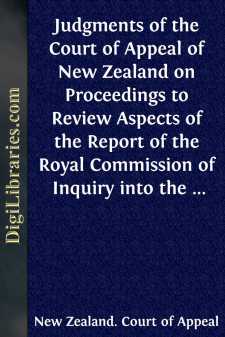Categories
- Antiques & Collectibles 13
- Architecture 36
- Art 48
- Bibles 22
- Biography & Autobiography 816
- Body, Mind & Spirit 145
- Business & Economics 28
- Children's Books 17
- Children's Fiction 14
- Computers 4
- Cooking 94
- Crafts & Hobbies 4
- Drama 346
- Education 58
- Family & Relationships 59
- Fiction 11834
- Foreign Language Study 3
- Games 19
- Gardening 17
- Health & Fitness 34
- History 1378
- House & Home 1
- Humor 147
- Juvenile Fiction 1873
- Juvenile Nonfiction 202
- Language Arts & Disciplines 89
- Law 16
- Literary Collections 686
- Literary Criticism 179
- Mathematics 13
- Medical 41
- Music 40
- Nature 179
- Non-Classifiable 1768
- Performing Arts 7
- Periodicals 1453
- Philosophy 66
- Photography 2
- Poetry 897
- Political Science 203
- Psychology 45
- Reference 154
- Religion 516
- Science 126
- Self-Help 85
- Social Science 82
- Sports & Recreation 34
- Study Aids 3
- Technology & Engineering 59
- Transportation 23
- Travel 463
- True Crime 29
Our website is made possible by displaying online advertisements to our visitors.
Please consider supporting us by disabling your ad blocker.
Judgments of the Court of Appeal of New Zealand on Proceedings to Review Aspects of the Report of the Royal Commission of Inquiry into the Mount Erebus Aircraft Disaster C.A. 95/81
Categories:
Description:
Excerpt
JUDGMENT OF COOKE, RICHARDSON and SOMERS JJ.
On 5 August 1981, for reasons then given, this Court ordered that these proceedings be removed as a whole from the High Court to this Court for hearing and determination. They are proceedings, brought by way of application for judicial review, in which certain parts of the report of the Royal Commission on the Mount Erebus aircraft disaster are attacked. In summary the applicants claim that these parts are contrary to law, in excess of jurisdiction and in breach of natural justice.
One of the reasons for ordering the removal was that it was important that the complaints be finally adjudicated on as soon as reasonably practicable. We had in mind that the magnitude of the disaster—257 lives were lost—made it a national and indeed international tragedy, so the early resolution of any doubts as to the validity of the report was a matter of great public concern. Also the report contained very severe criticism of certain senior officers of Air New Zealand. Naturally this criticism must have been having damaging and continuing effects, as evidenced for instance by the resignation of the chief executive, so it was right that the airline and the individuals should have at a reasonably early date a definite decision, one way or the other, on whether their complaints were justified.
In the event the hearing in this Court was completed in less than six days. We had envisaged that some further days might be required for cross-examination, as there were applications for leave to cross-examine the airline personnel and the Royal Commissioner himself on affidavits that they had made in the proceedings. But ultimately the parties elected to have no cross-examination—and it should be made clear that this was by agreement reached between the parties, not by decision of the Court. With the benefit of the very full written and oral arguments submitted by counsel, the Court is now in a position to given judgment before the end of the year.
We must begin by removing any possible misconception about the scope of these proceedings. They are not proceedings in which this Court can adjudicate on the causes of the disaster. The question of causation is obviously a difficult one, as shown by the fact that the Commissioner and the Chief Inspector of Air Accidents in his report came to different conclusions on it. But it is not this Court's concern now. This is not an appeal. Parties to hearings by Commissions of Inquiry have no rights of appeal against the reports. The reason is partly that the reports are, in a sense, inevitably inconclusive. Findings made by Commissioners are in the end only expressions of opinion. They would not even be admissible in evidence in legal proceedings as to the cause of a disaster. In themselves they do not alter the legal rights of the persons to whom they refer. Nevertheless they may greatly influence public and Government opinion and have a devastating effect on personal reputations; and in our judgment these are the major reasons why in appropriate proceedings the Courts must be ready if necessary, in relation to Commissions of Inquiry just as to other public bodies and officials, to ensure that they keep within the limits of their lawful powers and comply with any applicable rules of natural justice....


